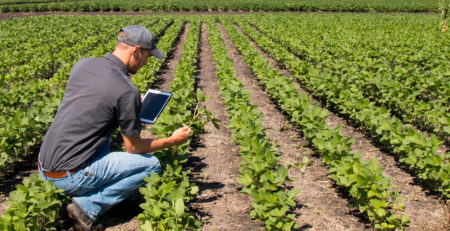How is Food Waste a Problem to Our Environment
Food waste is a growing problem in the modern world, and it’s one that we can no longer afford to ignore. One-third of all food produced globally ends up as waste. The Natural Resources Defense Council estimates that in the U.S. alone, 40 million tons of food are wasted yearly.
That’s enough food to end hunger for more than 25 million food insecure people. Food waste has many different impacts on our environment, and reducing it should be a top priority for anyone who cares about preserving natural resources for future generations.
Growth & Demand
As the world population continues to grow, so does the demand for food. Consumers are now more aware than ever of where their food comes from and how it impacts the environment. With this in mind, many are looking for ways to reduce their carbon footprint and eat more sustainably. One way to do this is by reducing the food waste in your family.
Not only is this a waste of resources, but it also contributes to greenhouse gas emissions that contribute to climate change. In addition, organic matter in landfill sites produces methane, another potent greenhouse gas. Reducing food waste is crucial for sustainable living and preserving our planet for future generations.
So how can we reduce food waste in the United States? There are many ways we can cut down on the amount of food we throw away each day. For example, we can plan our meals by writing out the perfect shopping list so we only go to the grocery store once to buy what we need. We can compost our kitchen scraps instead of throwing them away, and find food donation centers, in order to donate extra food to those in need, rather than letting it go to waste.
By making small changes in our daily habits, we can make a big difference in combating climate change and protecting our environment.
Environmental Impact of Food Waste
Food waste negatively impacts our environment in many ways. These incidents are often overlooked - and they’re as important as other environmental problems. It has many different impacts on our environment, including:
1. It Destroys Water
Food waste is a huge contributor to water pollution. When food is discarded, it creates an excess of food waste that has to be disposed of in waterways. In small ways, this can have a negative effect on the environment. This creates environmental problems such as the build-up of algae, which can cause flooding and contamination of drinking water.
During heavy rainstorms that hit the U.S., untreated sewage can be released into waterways, polluting them and making them unusable for drinking water. With few places to dispose of waste, cities dump it into waterways, contaminating the water.
In the United States, food waste is a leading cause of water pollution. When food scraps are disposed of in landfills, they decompose and release methane, a powerful greenhouse gas.
Methane is not the only pollutant emitted from landfills - leachate, a toxic liquid that forms when rainwater mixes with decomposing waste, can also contaminate nearby groundwater and surface water sources.
The good news is that there are ways to reduce food waste and its impact on the environment. One way is to compost food scraps instead of throwing them away. Composting accelerates the natural breakdown of organic matter, allowing it to be used as a nutrient-rich fertilizer for gardens and crops.
Another way to reduce food waste is by investing in efficient irrigation systems that minimize water use and prevent runoff from contaminating local waterways.
If you’re concerned about climate change and interested in doing your part to make a difference, reducing food waste is a great place to start. Not only will you be helping to protect our environment, but you’ll also be saving money in the process!
2. It Increases Pollution in the Air
A tremendous amount of food is thrown away in landfills every year. Not only does this contribute to greenhouse gasses, but it also affects our planet’s air quality by releasing natural gases like methane and carbon dioxide into the atmosphere when the organic matter breaks down under bacterial action!
3. It Increases the Cost of Food
Food waste is also a big contributor to the cost of food. When a family throws away food, it means that someone has to pay for that food. This can be extremely expensive, especially when it comes to fresh produce.
By throwing away food, you are not only wasting food but also wasting money. This can be a major problem in the current economic climate.
4. It Increases the Cost of Producing Food
With the cost of producing food increasing, farmers have been forced to produce more. When this fresh produce gets thrown away it doesn’t contribute anything towards an economy and that is why we need sustainable practices in place for our planet’s future - so you can enjoy delicious dishes without worrying, instead, about how many plastic grocery bags will be used when picking up your groceries.
With so many people struggling financially, reducing food waste is important. By taking action and reducing the amount of food you throw away, you can help support the local economy and help to reduce the cost of food production.
Ways to Reduce Food Waste
Waste food security is another major problem that needs to be addressed. There are several ways you can reduce the amount of food waste that is occurring in your home. Reduce, reuse and recycle!
The following tips include using leftovers (especially if they’re delicious), buying foods according the expiration date so it doesn’t go bad before use- try cooking doubled batches of recipes instead just because there is still plenty available when everyone’s favorite meal has already passed its prime; store perishable items properly by putting them in an airtight container such as plastic bags inside sturdy containers which will help prevent spoilage due to exposure during transport.
The following tips can reduce the amount of waste in your home:
1. Buy Only What You Need
The first step to reducing food waste is to be more aware of what you buy. Buy only what you need and make sure that you use it all before it goes bad.
If you buy too much food, not only will you waste money, but you will also be wasting a lot of time. When buying too much food, there’s going to be more food wasted.
2. Use Freezers
Freezers are a great way of storing food for a long period. By doing this, you will be able to prevent the food from spoiling before you need it.
If you want to store food for longer than two weeks, try freezing it in smaller portions rather than buying large frozen food packages. You can also freeze fresh produce. This will help keep costs down and ensure you save money on food already past its expiry date.
3. Be Creative With Leftovers
One of the best ways to reduce food waste is to be creative with leftovers. Leftovers used in many different ways. Once your food has been cooked, make sure that you store it properly so that it is not ruined or goes bad before you have a chance to consume it. It can be frozen and stored for use at a later date or even used to create a new meal altogether.
You can use leftovers in many different ways, but you should refrain from trying to reheat them and expect them to taste like they did when they were first cooked. Leftovers often don’t taste good when reheated, so you’ll need to find another way of using them.
4. Use What You Have
It is important to try and use what you have rather than buy new ones. Most people have a lot of food they never use in their cupboards and fridge. By using the food that you have, you will not only save money but also reduce food loss and waste.
5. Sustainable Farming
A sustainable farming system is a farming method that helps protect the environment and the land. It also ensures that you can farm for many years rather than only a few years.
By using sustainable farming techniques, you will be helping to reduce the amount of food waste produced. Sustainable farming techniques ensure that food is high quality and doesn’t go bad easily. This will help to reduce the amount of food waste that is occurring in most homes.





Leave a Reply